Backroads and Ballplayers #41
Stories of the famous and not-so-famous men and women from the days when baseball was "Arkansas' Game." Always free and always short enough to finish in one cup of coffee.
A New Look on the Web, Arkansans in the Show, and Slick
Above is a look at the home page of my new website. I have rearranged the content to promote stories rather than book sales. Obviously, I would be happy to sell you a signed book, and that information is included. I have linked several free resources, full-length articles, and my free weekly column/blog. Please take a look and share.
Who Makes the Opening Day Roster?
Six Arkansan-born men played in the major leagues in 2023. That list includes two pitchers who made their big league debut, two pitchers who have worked in more than 100 games, and Drew Smyly, who has pitched more than a thousand innings and has a World Series ring. It also includes a speedy utility guy from Camden who has played in six major league seasons but lost half of last season to a knee injury.
How many of these guys will appear again in 2024?
Jalen Beeks - Opening Day Roster - 10% - Appears in MLB in 2024 - 25%
If Jalen Beeks has made his last appearance in a big league game, he should be proud. He was a pretty good major league pitcher. To be more accurate, his career as a major league pitcher makes him successful beyond any evaluation that includes the description “pretty good.” Just reaching the majors makes him one in a million. He pitched in 131 big league games, won 16, and lost 11, with a lifetime ERA of 4.38. That is at least pretty good at baseball’s highest level.
Jalen Christopher Beeks, of Prairie Grove, Arkansas, and the Arkansas Razorbacks was released by Tampa Bay in mid-winter, and I have found no evidence that he has been picked up. It could still happen.
Jonathan Davis - Opening Day Roster - 40% - Appears in MLB in 2024 - 50%
Jonathan Rayshad Davis has played 205 big league games. Only 56 Arkansans have played in more. He has played in more major league games than any alum of the University of Central Arkansas, including former Bears from Arkansas Normal, Arkansas State Teachers College, and State College of Arkansas). I have caught a couple of his games on TV, and he is one of those guys who looks like he loves to play the game.
After a “right knee sprain” in early July turned out to be right knee surgery, he sat out the last half of the 2023 season. The Marlins resigned him on January 8, to a minor league contract with a guaranteed trip to spring training. He is 31 years old. He certainly can’t make 700 grand in the real world. I think he will play somewhere, and if he still has his speed, I am giving him a 50—50 chance of returning to the bigs.
Drew Smyly - Opening Day Roster - 90% - Appears in MLB in 2024 - 90%
Drew Smyly has a lifetime record of 64 wins and 58 losses. He has pitched more than 1,000 big league innings, with a 4.22 ERA. A closer look at the double-certified Arkansas major leaguer, (born in Arkansas, and a former Razorback) reveals one of our state’s most successful baseball stars, an oft-injured pitcher who never gave up and who became part of some of the most memorable moments in recent baseball history.
He led the 2021 World Series Champion Atlanta Braves starting pitchers in winning percentage with an 11—4 mark. He was masterful in the second “Field of Dreams” game, and on April 21, of last season he had a perfect game going until a strange collision with his catcher turned the win into a one-hitter.
Smyly has about ten million reasons to return for an 11th season. He was the Cubs’ best long reliever in the last half of the season. He is almost a cinch to make the Opening Day Roster in some capacity.
Previous Smyly features in Backyards and Ballplayers: #13, and #36
Gavin Stone - Opening Day Roster - 20% - Appears in MLB in 2024 - 60%
Gavin Stone from Lake City, Arkansas, and UCA, made four shaky starts and four relief appearances in 2023 as the Dodgers’ emergency-callup guy. He pitched most of his 29 starts in Oklahoma City where he fared much better, despite being the “frequent flyer” in the LA organization.
A lot of young pitchers struggle in their first exposure to big-league hitting and the Dodgers have not given up. He is still ranked in the top ten prospects in LA’s minor league system. Stone could become a middle-rotation starter, and there are some starts on the table with Clayton Kershaw not expected back until late summer. Maybe it is the UCA guy in me, but I think he will make some trips to LA in 2024, perhaps he might even get to unpack.
Previous Stone features in Backyards and Ballplayers #8, and #23
Jakob Junis - Opening Day Roster - 90% - Appears in MLB in 2024 - 90%
Jakob Benjamin Lee Junis was born in Jacksonville, AR, but grew up in Illinois. He was a high school star in basketball and baseball at Rock Falls High School and signed immediately after graduation with the Kansas City Royals. The Royals took him in the 29th round of the MLB Draft, and he meandered through their minor league system without big-league attention until his sixth pro season found him in Northwest Arkansas. Junis discovered something with the Naturals. He started 21 games and posted a 3.25 ERA, with 117 strikeouts in 119 innings, earning a promotion to Kansas City in 2017.
Beginning with his debut season, Junis has consistently pitched well enough over seven seasons to make a big league roster. With the Giants in 2023, he was 4—3 in 40 games with a 3.87 ERA, good enough to reach free agency on a high note.
According to Ken Rosenthal of The Athletic, Junis signed last week with the Brewers for $4 million in 2024 and a $3 million buyout. The total guaranteed amount is $7 million, an amount that might guarantee he will be with Milwaukee on Opening Day.
Jordan Wicks -Opening Day Roster - 60% - Appears in MLB in 2024 - 80%
I know this can happen only in Arkansas… Early in January, Susan and her sister Ann wanted to check out the 90% off Christmas items at Ace Hardware. I located the convenient husband’s chair just inside the door. Of course, they found several items that they plan to use next Christmas. They made a promise to each other that they would remember where they stored these treasures.
At the checkout, they met a gentleman who mentioned that his son pitched for the Chicago Cubs. Of course, in Conway, Arkansas, you can run into Jordan Wicks’ father in the checkout line at the hardware store.
While the ladies waited in the checkout line, Jeff Wicks and I talked about the task ahead for Jordan to prove himself again in spring training. I told Jeff that Jordan’s story was my favorite baseball story of the summer.
In the amazing 2023 season, the Wicks family followed Jordan from Knoxville, Tennessee, to Des Moines, Iowa, and finally to the Chicago Cubs. Along the way, he won 10 consecutive pitching victories, finishing the dream summer with 11 wins and only one loss at the three levels. On Wicks’ whirlwind journey, thousands of Arkansans got on board the Jordan Wicks Express. I would not be surprised to find that the best is yet to come. Here in his home state, even the diehard Cardinals folks are now Jordan Wicks fans.
Wicks made his major league debut on national television on August 26 against the Pittsburgh Pirates. Ke’Bryan Hayes deposited his second offering about ten rows deep just right of the left field foul pole. Left fielder Bryan Reynolds lined Wicks’ next pitch a few feet over the pitcher’s head for a base hit. Five pitches later, veteran Andrew McCutcheon walked.
Although he had every chance to panic, Wicks reacted like a veteran. He struck out the next three hitters and escaped the first inning after allowing only one run. The Cubs put up three runs in the third inning and five more in the fifth. Wicks was relieved in the bottom of the sixth, after 80 pitches and the Cubs holding an 8—2 lead. The rookie from Conway had not allowed a hit after the first inning and struck out nine Pirates. He was in Chicago to stay.
Wicks made six more starts down the stretch for a Cubs team that fell just short of the playoffs. Up until his final outing, a rough start in Milwaukee, he had posted a 4—1 record and a 3.00 ERA in his big league audition. He was simply one of the Cubs’ most dependable pitchers down the stretch.
I read that the Cubs are thinking about starting Wicks in AAA. That may be the plan, but having witnessed his poise under pressure, I think he will spend Opening Day with the Cubs.
More Jordan Wicks features in Backroads and Ballplayers: #22, #23, #27, and #36
“Slick”
For the last ten years or so, I have made it my “retirement avocation” to record as much of the history of Arkansas’ baseball as possible. I love it, and despite the tedious research that this treasure hunt requires, most of the time I can dig up what I need. There are several really good Arkansas baseball books, the 20th century game received lots of newspaper coverage at all levels, and families often kept primary source items from their grandpa’s games. While a little detective work usually produces good results, that is not true about one aspect of our baseball heritage.
I had been at this work for two years before I discovered that I walked by the backyard of one of the state’s most heralded baseball players. Floyd “Jelly” Gardner was an African American, and he played in the Negro Leagues of the first half of the 20th century. Much of his story is obscure, and some of it is lost.
Compared to material about the major leagues of the 20th century, the history of the Negro Leagues is sparse and often non-existent. That is especially true of players in the Negro Minor Leagues, or the town teams that existed in most Black communities.
The most successful effort to save these stories can be found in the Negro Leagues Baseball Museum in Kansas City, Missouri. The story of that effort to preserve this history is also the story of an effusive storyteller from Yell County, Arkansas.
Slick Surratt claimed that he was so fast that if he hit a ground ball that bounced more than once the fielder might as well just pick it up because he was already on first base. A good ball player, but a better storyteller, Surratt became an energetic leader in the movement to recognize the great African American baseball players of the 20th century.
Alfred “Slick” Surratt was born November 9, 1922, near Danville, Arkansas. He spent his youth in both Arkansas and Kansas City, where his father lived, but the 1940 census shows him living in Yell County, Arkansas. After serving in World War II, he returned to Kansas City and began his baseball career. That career would be spent in the only advanced opportunity to play baseball professionally available to African Americans in the 1940s. A segregated major league called the Negro Leagues.
In the late 1800s as baseball became “America’s Pastime,” young Black men found a place on military teams, college teams, and company teams. The most talented of these pioneers like Moses Fleetwood Walker and Bud Fowler even played beside white players on early professional teams, but by 1900 racism and “Jim Crow” laws would relegate African Americans to exhibition games and on barnstorming teams.
The haphazard and informal structure of minority baseball changed significantly in 1920 when an organized league structure for players of color was formed under the guidance of Andrew “Rube” Foster, owner of the Chicago American Giants. In a meeting held in Kansas City, Missouri, Foster and a few other Midwestern team owners joined to form the Negro National League. The league would produce some of the most talented men to ever play the game. Unfortunately, those legendary baseball stars never had to opportunity to test their talent in the major leagues. Slick Surratt was among the last stars of that “other major league” known today as the Negro Leagues.
Most accounts of Surratt as a player indicate he was a “good” outfielder with exceptional speed. His hitting style was predicated on bunts, ground balls, and fast legs. Surratt played for the Kansas City Monarchs and Detroit Stars from 1947—1952. He also did some barnstorming on some of Satchel Page’s traveling teams, which featured stops in several big league parks, including Yankee Stadium.
While never listed as one of the great players of the Negro League era, Alfred “Slick” Surratt became an important figure in the preservation of the history of those great performers. After his baseball years ended, he became a youth baseball coach in the Kansas City area, where he worked for more than 50 years for Ford Motor Company. He also became one of the most visible faces of Negro League baseball and worked tirelessly to ensure that great players of color would get their deserved recognition.
In the early 1990s, Horace Peterson, a leader in the preservation of African-American history, was joined by former players that included the well-known Buck O’Neil and a lesser-known local Negro League alum named Slick Surratt, to found the Negro League Baseball Museum in Kansas City, Missouri. From humble beginnings, the museum now resides in a 10,000-square-foot facility shared with the American Jazz Museum. Surratt served on the board of the Negro League Museum until his death.

Perhaps the best descriptions of Slick Surratt were shared at his passing by his good friend, former baseball commissioner Fay Vincent.
“Slick passed away earlier this week, and his death left me saddened to the core. He was more than a friend. I truly loved him.”… “He was as slim as a pencil with the build of a greyhound. But it was his smile you had to notice. He was always smiling, full of joy. He seemed to be having fun—and he was fun to be with.”
"I see no point in being bitter, Commissioner," he told me. "It won't do no good for no one." I will not forget the lessons I learned from this good and noble man. I will miss him, but I will never forget the joy of being in his company. If there are reserved seats where he is, I hope he keeps me in mind. Fay Vincent, Wall Street Journal
Alfred Surratt died on February 15, 2010, but his legacy lives on at the Negro League Museum in Kansas City, Missouri. The museum features exhibits, collections of Negro League memorabilia, and multi-media presentations. The museum, in partnership with the Kansas State University Teacher Education faculty and local teachers, has also developed numerous educational programs to tell the Negro League story to a new generation of students.
On December 16, 2020, 100 years after their creation, Major League Baseball officially recognized the Negro Leagues as major league teams. The seven leagues, which played from 1920 to 1948, will have their stats and records added to Major League history.
If you like these stories, please consider a subscription. The only way to be sure that you receive every issue of this column/blog is to subscribe below and receive it in your email or find it every Monday evening on my Facebook page.
More information on Negro League Baseball:
Negro League Star Floyd “Jelly” Gardner – Russellville, Arkansas
Negro League Baseball in Arkansas
Information:
Happy Birthday Dick Hughes February 13 - A Tribute in Only in Arkansas
If you have missed some posts click here: Link to access past posts.
More of my stories in Only in Arkansas
If you want signed Hard Times and Hardball or Backroads and Ballplayers: Ordering instructions Link




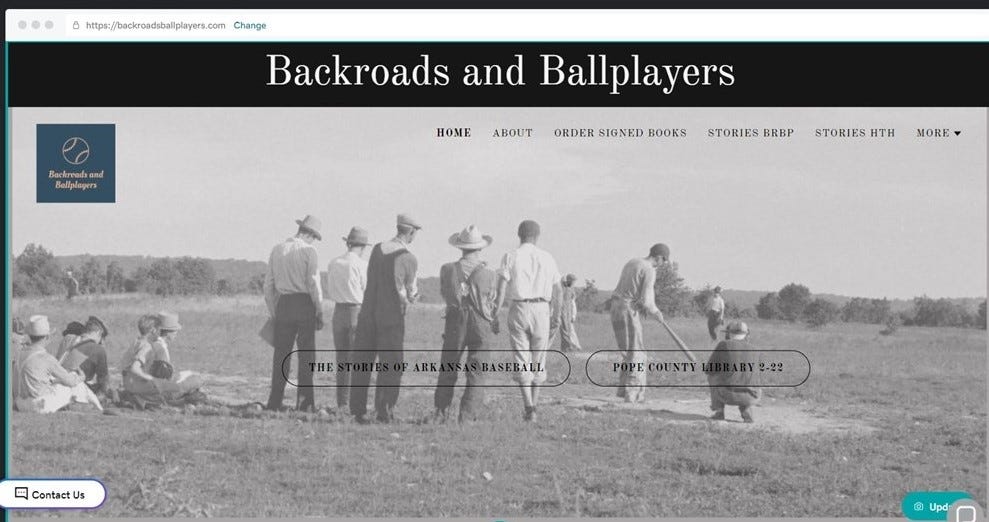
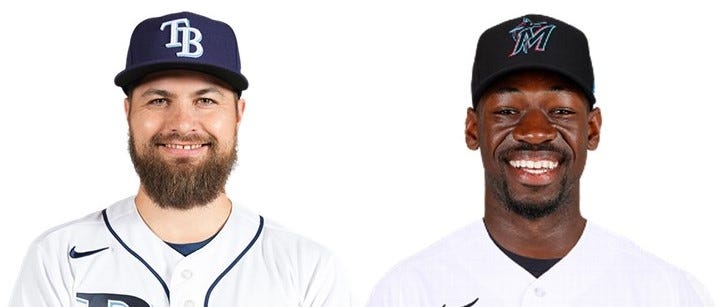


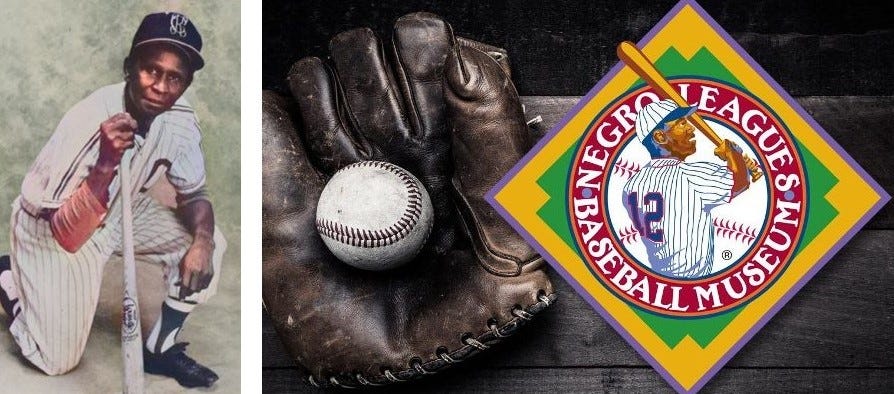
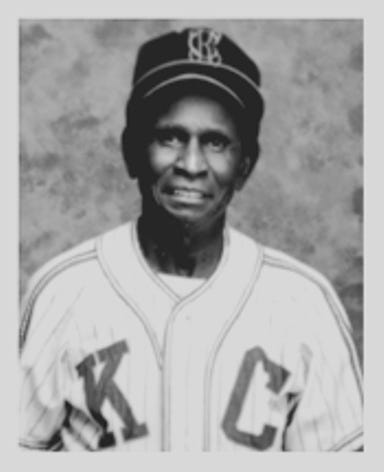

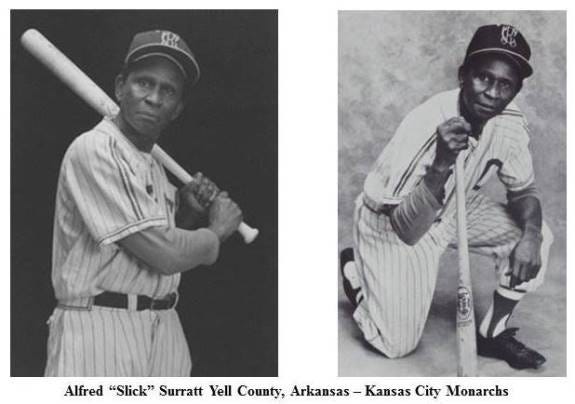
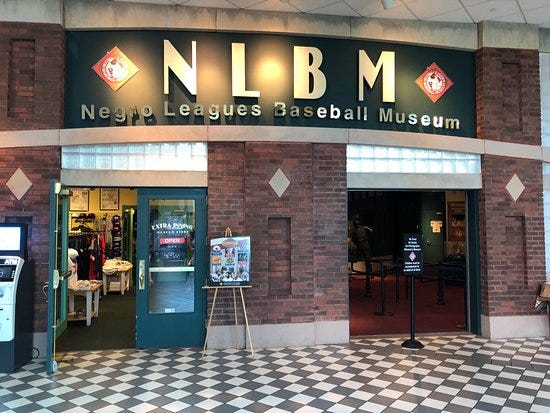
The NLBM is a treasure, and I encourage everyone to go if they get a chance. On the off-chance anyone reading this is headed to KC in the next couple of weeks, the Royals are actually covering the cost of all admissions for the month of February.